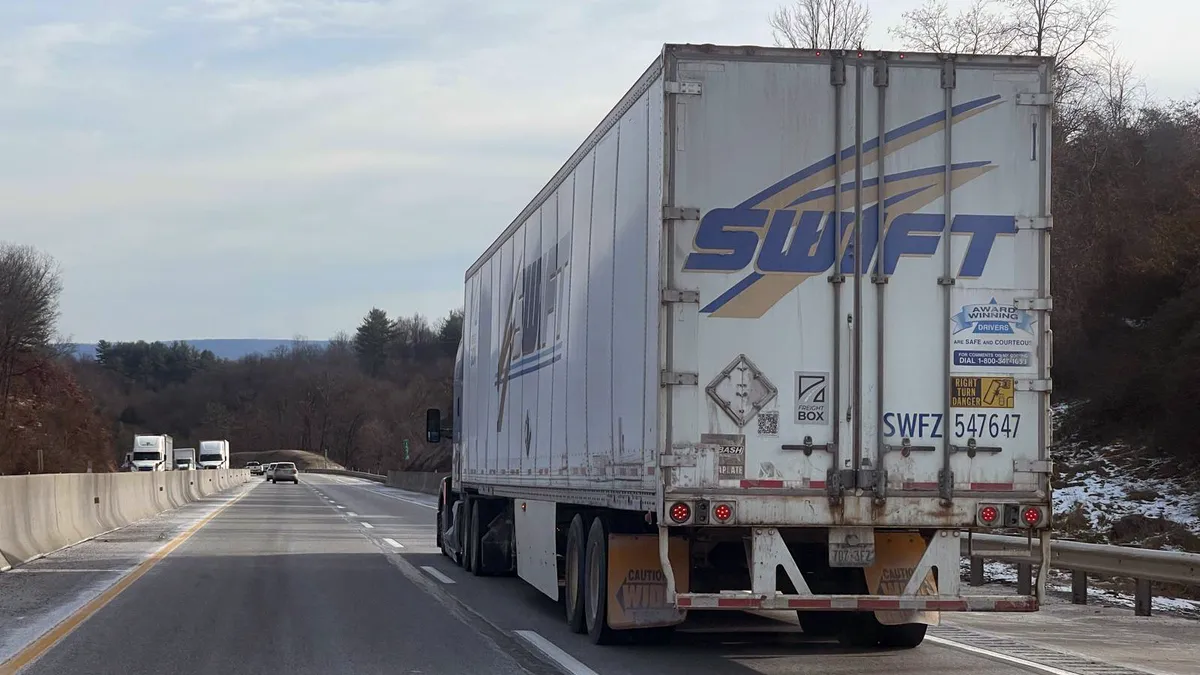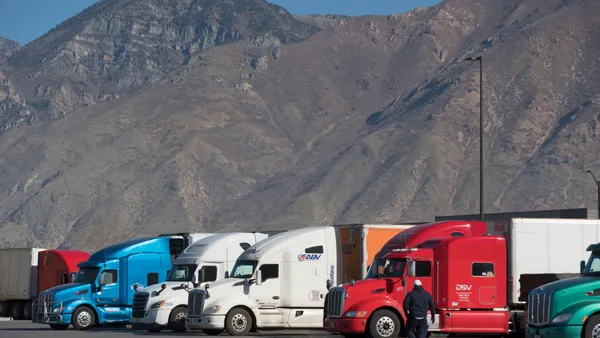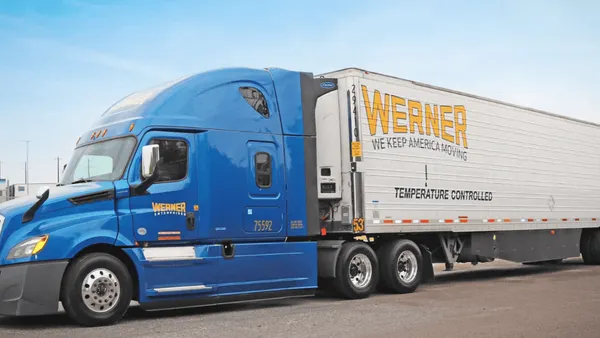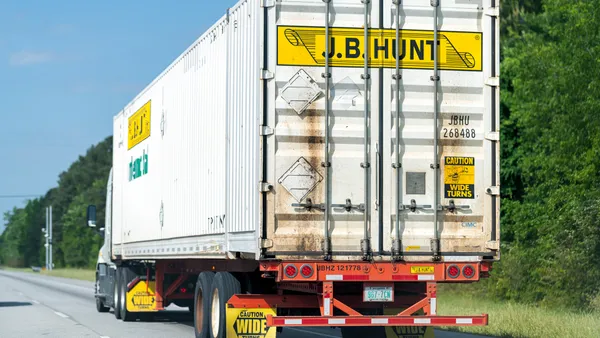Dive Brief:
- Knight-Swift Transportation Holdings’ consolidated operating income increased 14.4% to $72.6 million in Q2 compared to a year ago, the trucking giant announced Wednesday in an earnings release.
- Its truckload segment made the most gains in that metric for the quarter, while its less-than-truckload segment saw a substantial drop compared to Q2 2024. The company’s intermodal business also had an operating loss worsen.
- “Overall, most segments experienced pressure on revenue year over year with a soft freight environment,” CFO Andrew Hess said in an earnings call Wednesday.
Knight-Swift segments post mix of operating income ups and downs
| Segment | Q2 2025 | Q2 2024 | Percent change |
|---|---|---|---|
| TL | $45.4 million | $23.5 million | 93.4% |
| LTL | $18.3 million | $33 million | Negative 44.5% |
| Logistics | $5.5 million | $4.8 million | 16.6% |
| Intermodal | Negative $3.4 million | Negative $1.7 million | Negative 99.7% |
| All other | $6.7 million | $3.9 million | 73.6% |
SOURCE: Knight-Swift Q2 2025 earnings release, presented by generally accepted accounting principles
Dive Insight:
U.S. tariff policy spurred volatile freight flows, requiring agility from Knight-Swift businesses that its workforce delivered, CEO Adam Miller said on the earnings call.
The “import cliff that many anticipated” was limited, but there was a general softness in freight demand for most of Q2, especially on the West Coast, he said.
“Given this backdrop, we are pleased that our truckload business was able to prevent a deeper decline in revenues while growing margins and operating income meaningfully year-over-year,” Miller said.
Truckload revenue decreased 2.7% in Q2 to under $1.1 billion, excluding fuel surcharges and intersegment transactions.
Nevertheless, the West Coast import volume decline hit the company’s intermodal segment most, prompting a 13.8% revenue decline YoY, Treasurer and SVP of Investor Relations Brad Stewart said on the call.
“As part of our efforts to improve the cost structure, we converted to private chassis in five markets during the quarter, completing an initiative we began early this year,” he said.
Meanwhile, LTL is still integrating its acquisition of the less-than-truckload division of Dependable Highway Express as well as digesting costs from recently opened facilities, according to the earnings release. The company could add some new terminals in strategic places to that network this year, Miller said.
Other trucking firms reported various challenges in Q2. Heartland Express’ operating revenue declined 23% to $210 million. Covenant Logistics Group had flatter revenue for its combined TL segments of expedited and dedicated.
“We believe that general freight market fundamentals are slowly improving, although progress is uneven,” Covenant CEO and Chairman David Parker said in an earnings release, projecting that clearer trade policies in the future could help demand.












